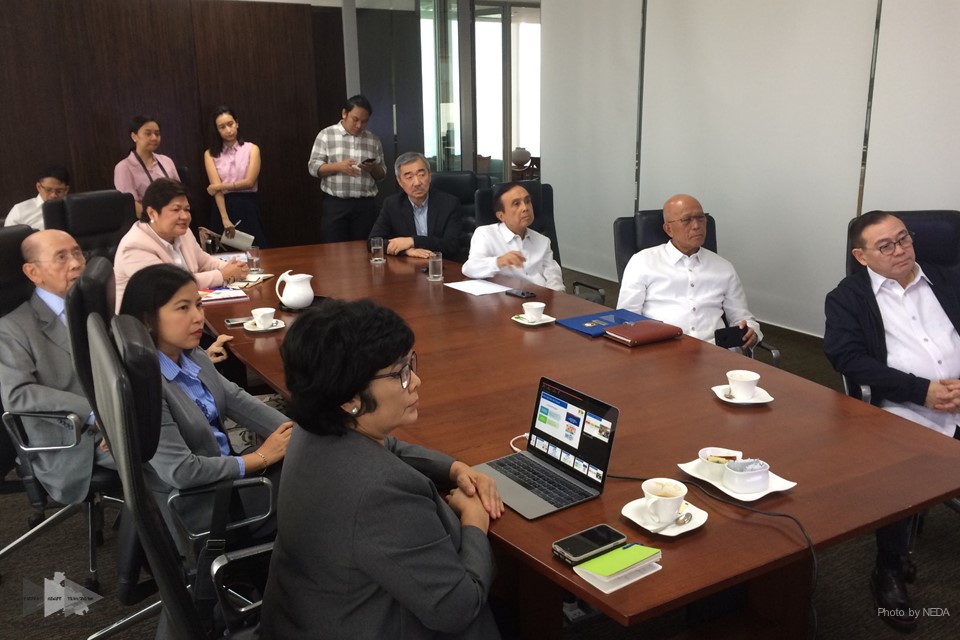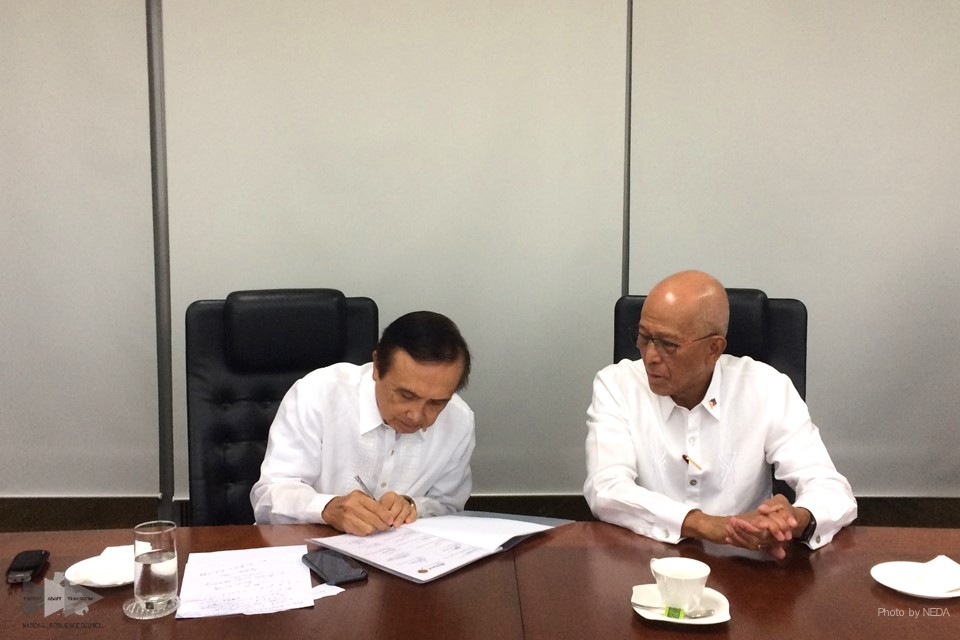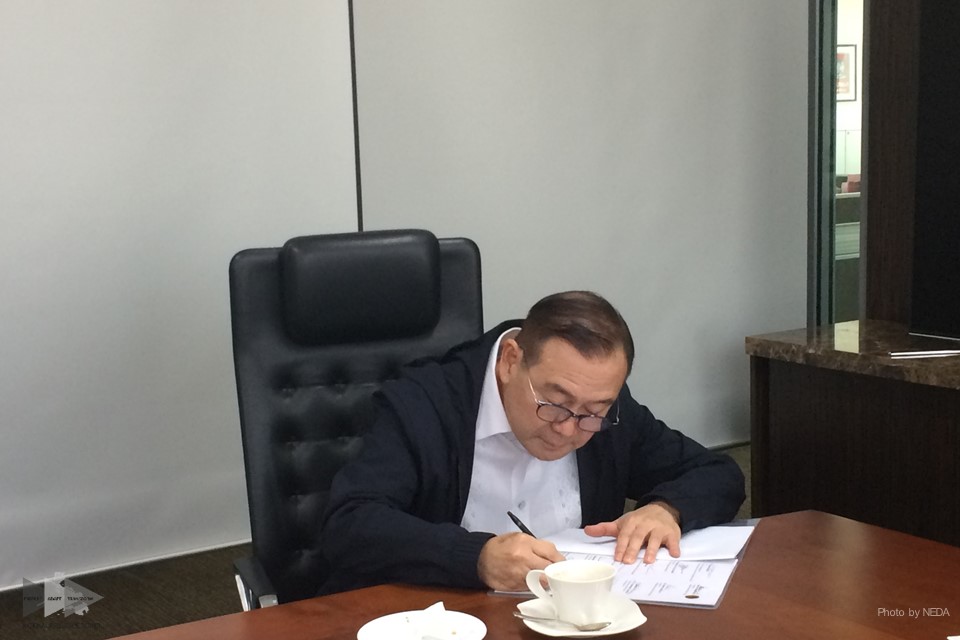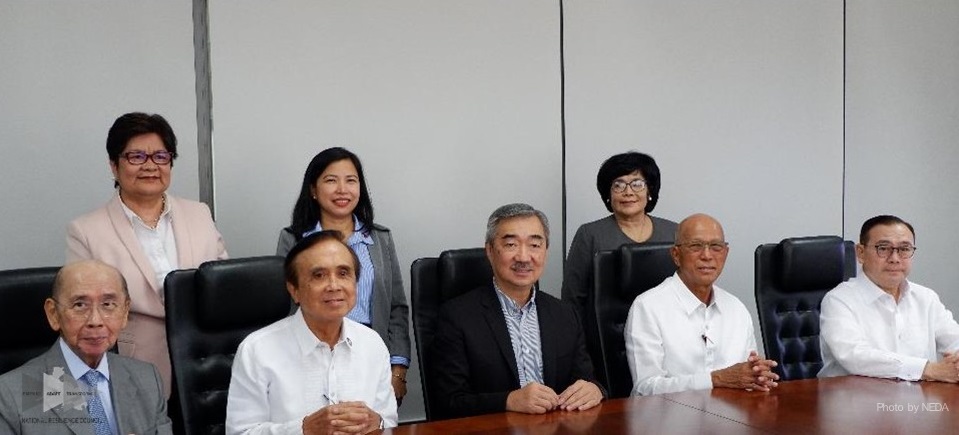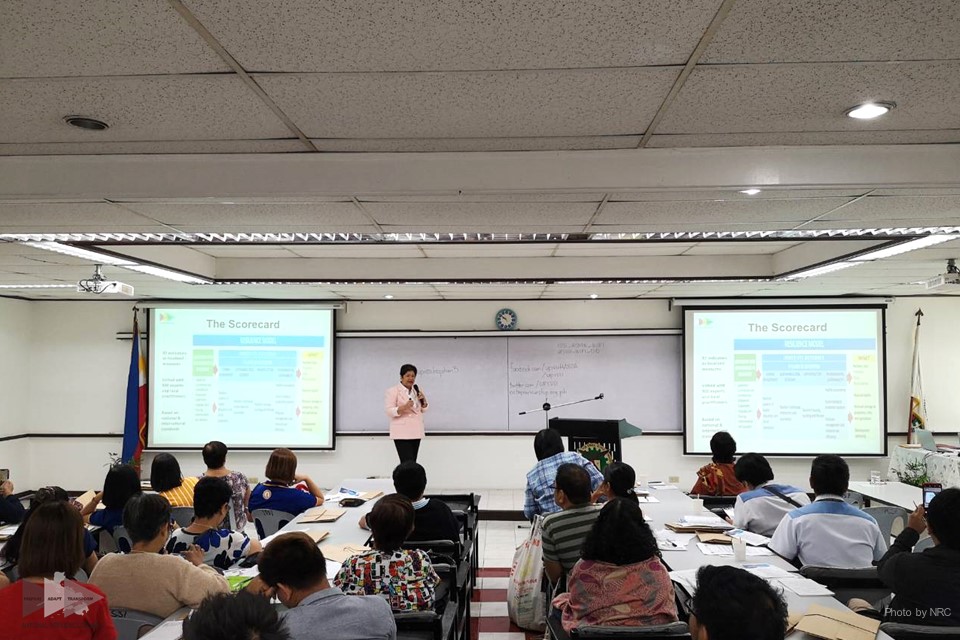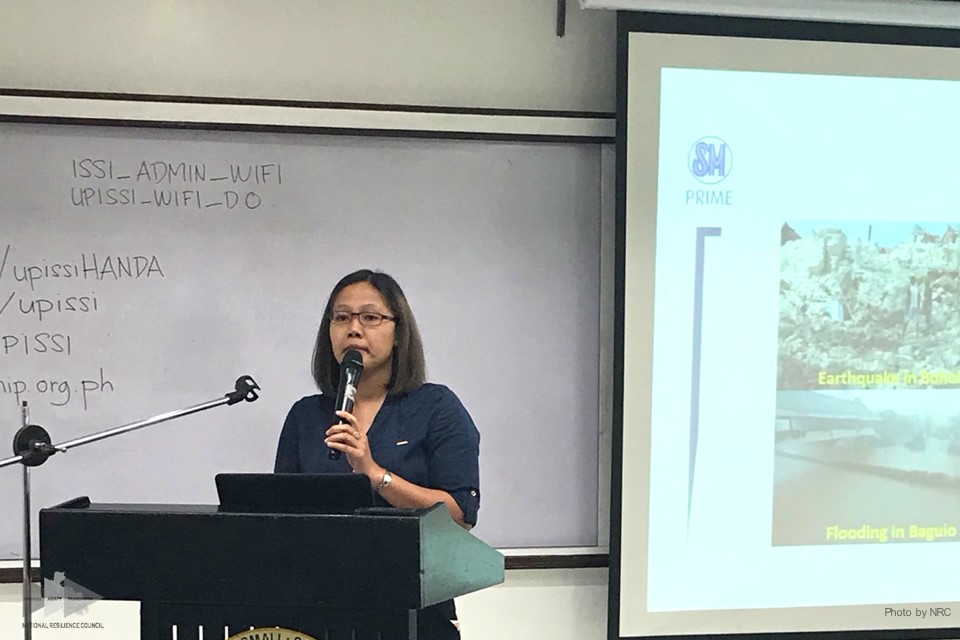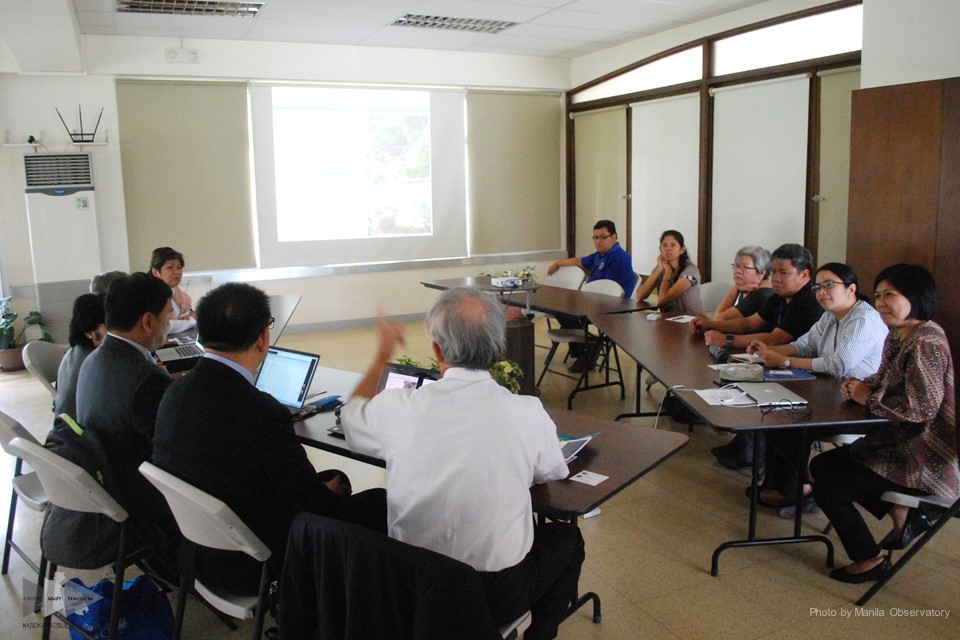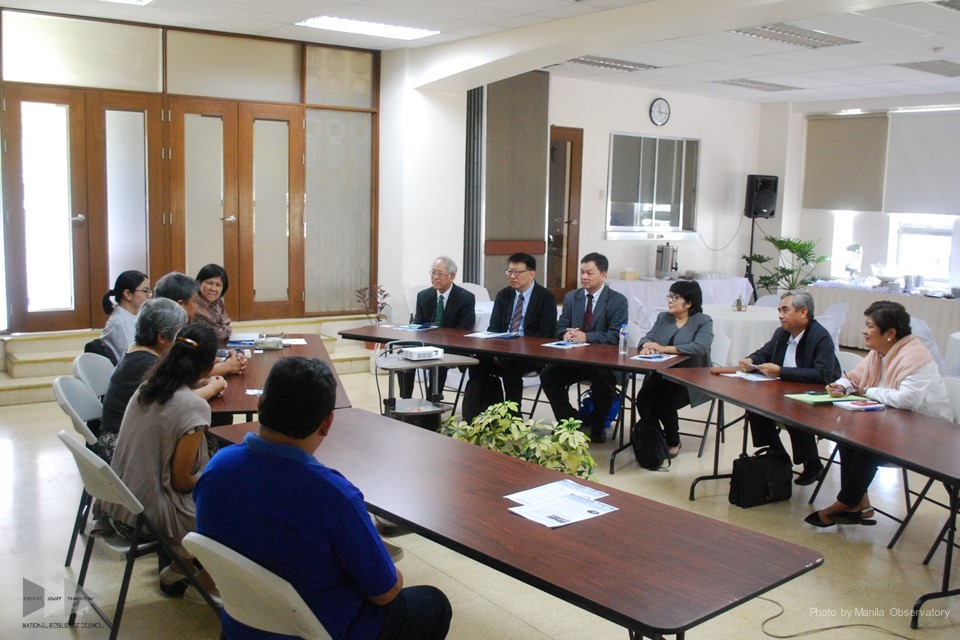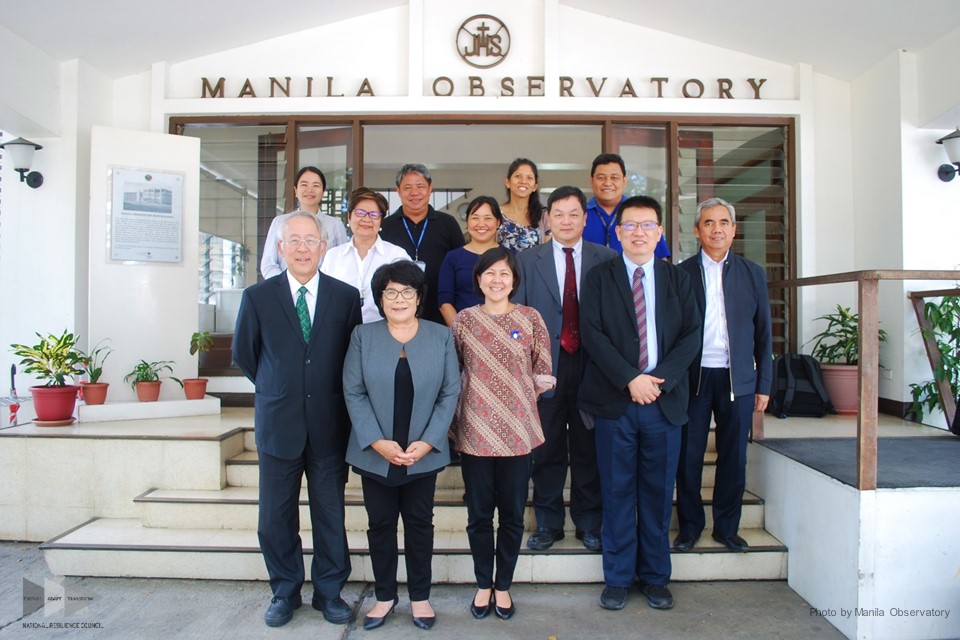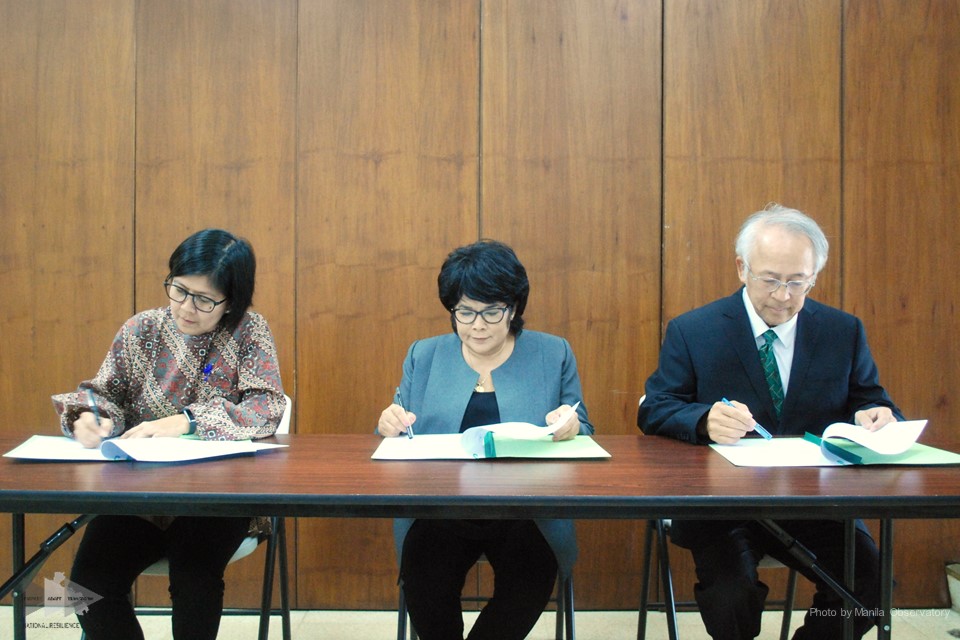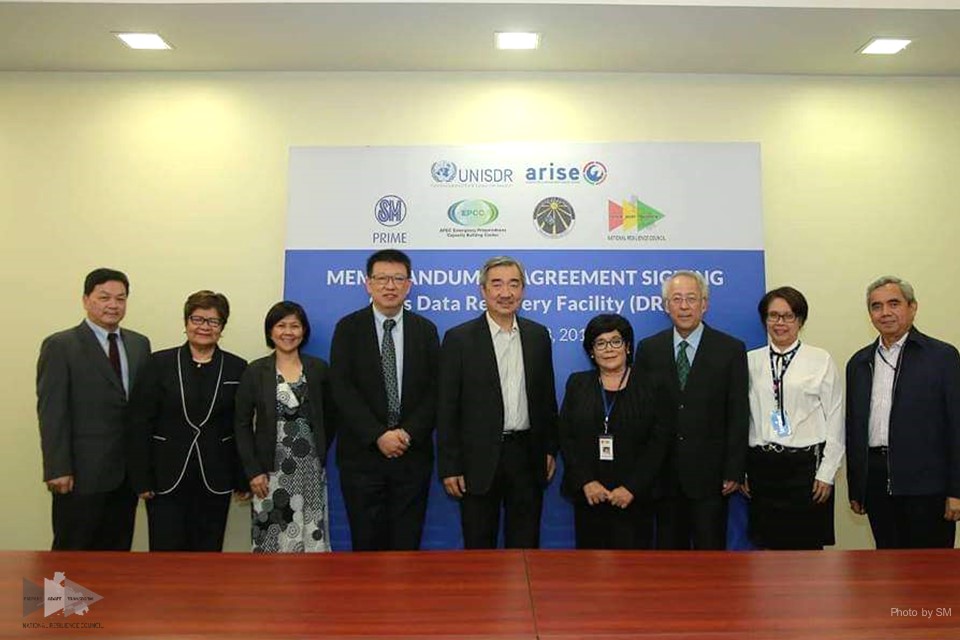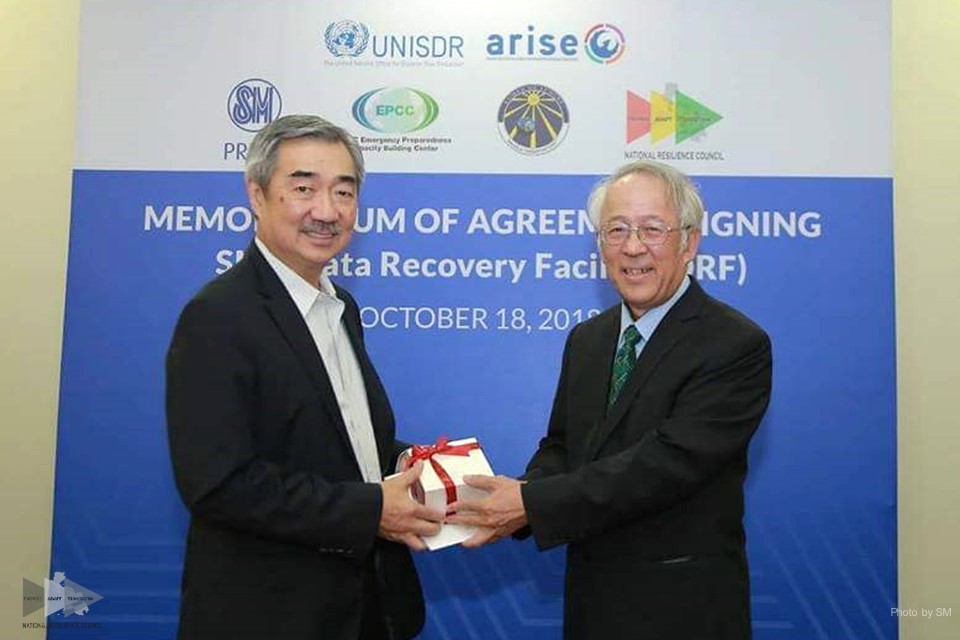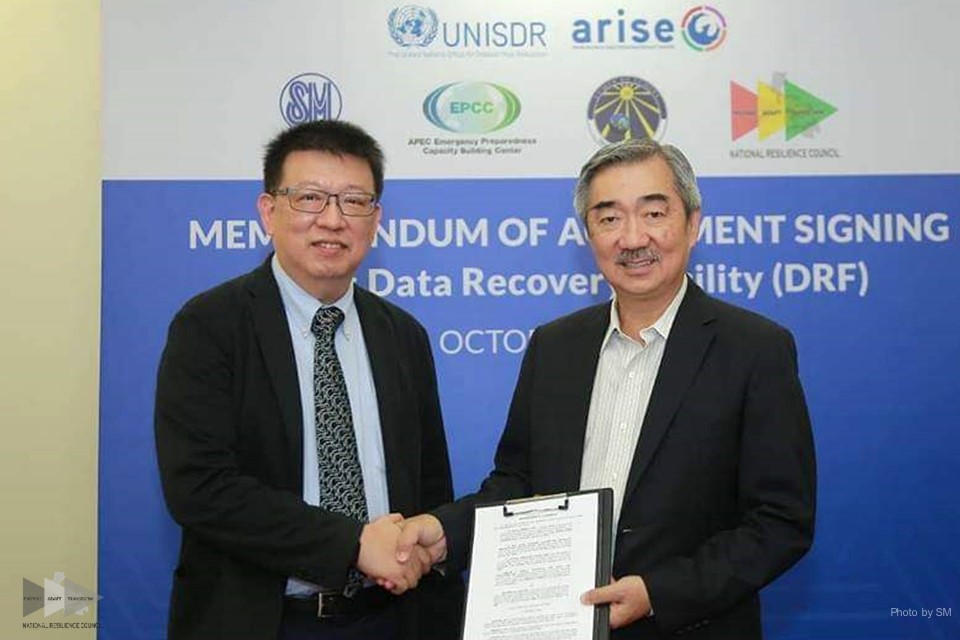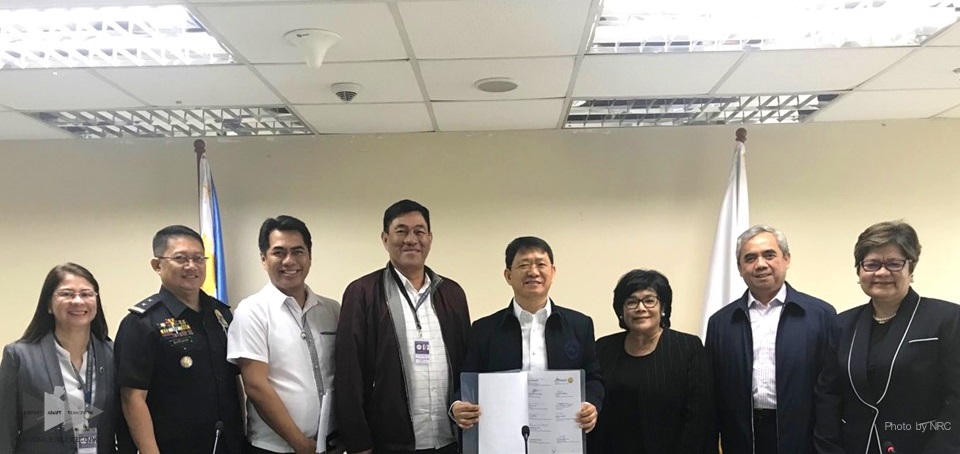NRC at UP Institute for Small Scale Industries
Memorandum of Cooperation – NCDR-Iloilo City-MO-NRC
Iloilo to work with Taiwan for disaster risk reduction
On 18 October, a Memorandum of Cooperation (MoC) was signed between the Taiwanese Government—through the National Science and Technology Center for Disaster Reduction (NCDR)—and Iloilo City, in partnership with the National Resilience Council (NRC) and the Manila Observatory (MO). The MoC will provide Iloilo City an opportunity to learn about and adopt Taiwan’s best practices on disaster risk reduction. This also includes guidance in developing capacity-building tools and systems that can aid in information analysis, risk assessment and policymaking.
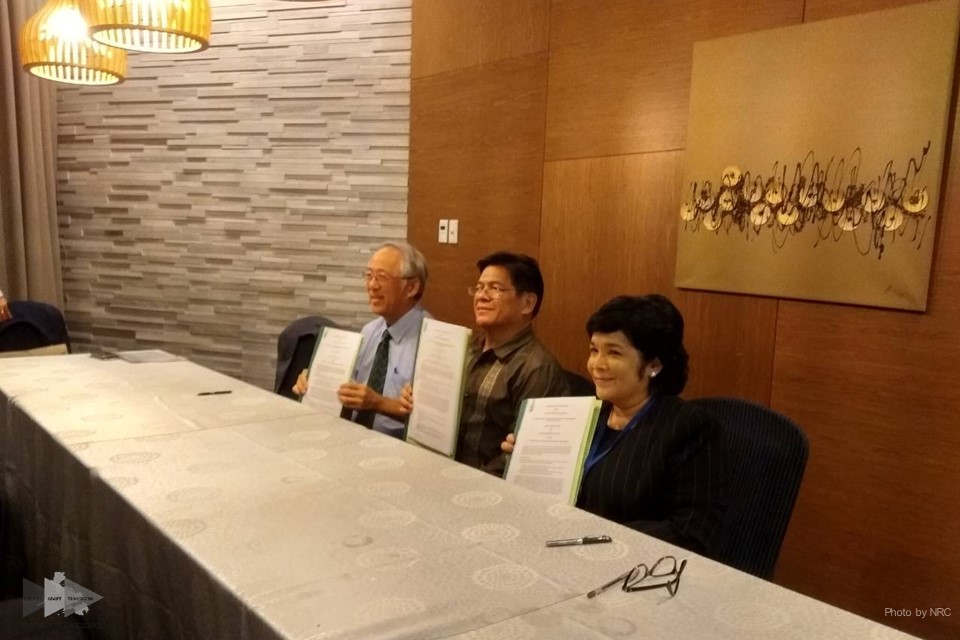
Also through NCDR, Taiwan’s technical adviser on disaster prevention and reduction, the Taiwanese government will grant the establishment of 20 automatic weather stations (AWS) in Iloilo City.
For Iloilo City Mayor Jose Espinosa III, the partnership will contribute to the city’s existing programs. Although there is an existing 24/7 operation center, he said the city is also planning to set up a command center to complement Taiwan’s AWS donation. City Disaster Risk Reduction and Management Office (CDRRMO) chief Donna Magno said a command center for disaster response and management will be greatly needed, especially with the city adopting Taiwan’s risk assessment platform. Taiwan will also be a big help in terms of gathering data at the community level because its technologies. Currently, Iloilo could only access regional data.
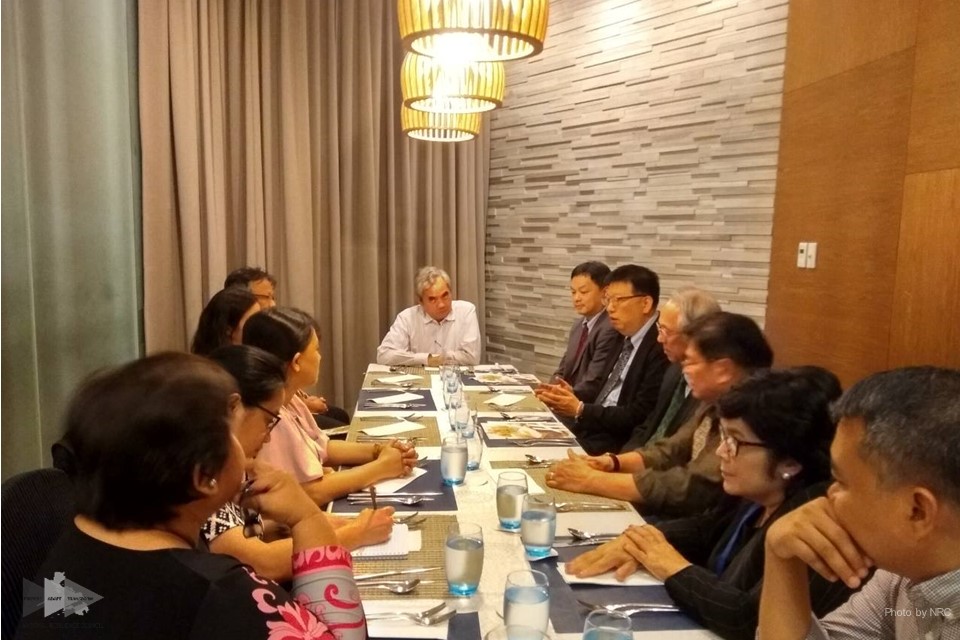
Iloilo City was chosen through NRC, a science and technology-based public-private partnership working towards disaster resilience in the Philippines. The city is one of the eight LGUs undergoing NRC’s Resilient LGU Program designed to capacitate LGUs in developing and implementing comprehensive programs for disaster risk reduction through a Resilience Scorecard that covers five pillars: Leadership and Governance, Human Development Systems, Local Economy, Infrastructure and Environment.
NCDR Director Hongey Chen also cited the city’s commendable knowledge-based programs on disaster risk reduction and management as reason for its interest.
With MO—a Jesuit scientific institution focused on advancing its mission in environmental and pre-disaster science—onboard, the initiative will produce new scientific researches.
Following the MoC, Iloilo City will send a representative to Taiwan for a field visit. NCDR, in turn, will hold inspections at the city’s flood areas where the AWS can be installed.
Memorandum of Agreement – SM-APEC-MO-NRC
Partnership Agreement – NRC-DILG
ARISE Philippines and NRC hold Forum on Understanding Risk and Resilience
Fifty-eight representatives from the government, private sector, academe, professional organizations, non-government and civil society organizations gathered at the Forum on Understanding Risk and Resilience last 12 October 2018 at the SMX Convention Center Aura in Taguig City.

The Private Sector Alliance for Disaster Resilient Societies (ARISE) in the Philippines, SM Prime and the National Resilience Council (NRC) organized the event in celebration of the International Day for Disaster Risk Reduction, annually celebrated on 13 October. With the participants coming from different backgrounds, the Forum brought about diverse insights on disaster risk and resilience.

The Forum also served as a platform to promote the seven Sendai Framework for Disaster Reduction Global Targets, which the international community has been doing since 2016. This year, the focus was on Target C: Reduce direct disaster economic loss in relation to global gross domestic product (GDP) by 2030.

Zuellig Family Foundation (ZFF) President and NRC Vice Chairman Prof. Ernie Garilao welcomed the participants with an important reminder that understanding risk is first and foremost, before responding effectively to this year’s promotion of the Sendai Global Target C. He also urged leaders to take on a whole-of-government approach to ensure a resilient LGU where all pillars work together through collaboration, and community members to become partners for development.

“We are bringing forth our whole of nation or whole of society approach to DRRM by building strong partnerships with all sectors of Philippine society.” Office of Civil Defense (OCD) Deputy Administrator for Administration Assistant Secretary Kristoffer James Purisima highlighted in his remarks the importance of partnerships in the disaster resilience advocacy. “Today’s forum is proof of that enduring and lifesaving partnership,particularly as we celebrate the International Day for Disaster Reduction.”

On building a resilient Philippines, Manila Observatory Senior Research Fellow and Climate Change Commission (CCC) National Panel of Technical Experts Member Dr. Rosa Perez set the tone through a discussion on the consideration of hazards, exposures and vulnerabilities(HEVs) in assessing risks, the importance of prioritizing DRR in both the national and local context and the complexities of climate change.

National Economic and Development Authority(NEDA) Undersecretary Adoracion Navarro, meanwhile, discussed the Sendai Global Target C and how the country assesses disaster-related physical damages and economic losses through international and local methodologies, especially since the Philippines is a member of the Open-ended Intergovernmental Expert Working Group (OIEWG). She also elaborated on the incorporation of the Philippine Development Plan(2017-2022) to the Sendai Framework, highlighting the government’s initiatives in measuring DRR efforts.

Christian Aid Climate Change Advisor for Asia and the Middle East Ms. Jessica Bercilla engaged the participants in a discussion on resilience. The participants also underwent a workshop and formed groups in the afternoon to tackle risk, where they were asked to identify hazards, exposures, and vulnerabilities of different case studies of disasters.


Participants also shared their realizations from the latest disasters like the landslide in Itogon, Benguet, the tsunami in Palo City, Indonesia and the aftermath from Typhoon Ompong. They pinpointed improved policies, capacity-building activities,government systems, integrated risk assessments, resettlement strategies, livelihood alternatives, partnership between government and private sector and Information, Education and Communication (IEC) campaigns on disaster risk as possible ways to prevent or lessen disaster risk.

Co-facilitating were Ateneo de Manila University Lecturer and Coastal Cities at Risk (CCAR) in the Philippines: Trans-Disciplinal Action Research Project Manager Dr. Noralene Uy, who discussed the spheres of vulnerability, and SM Supermalls Disaster Risk Reduction Consultant VADM Alexander Pama, who talked about the National Disaster Risk Reduction and Management Plan (2011-2028) and the framework for safer, adaptive Filipino communities for sustainable development. Ending the event were presentations of workshop outputs from the participants, and a closing message from VADM Pama.
Photos courtesy of SM.
For resilience: NRC partners attend first phase of climate and disaster risk assessment course
From 8-12 October 2018, the National Resilience Council’s (NRC) eight partner local government units (LGUs) and six partner academic institutions participated in the 1st phase of the Climate and Disaster Risk Assessment (CDRA) Certificate Course for the NRC Resilient LGU Program.
Held at the Manila Observatory (MO) in Quezon City, the 5-day event aimed to guide LGUs in establishing baselines and targets through resilience scorecards, while allowing stakeholders to create resilience road maps from prepare, adapt and transform stages. With risk governance in mind, these stages encompass identified pillars and sub-pillars of human development, local economy, infrastructure, environmental sustainability and human security.

It was also designed to build among the NRC partners an understanding of the tools used towards disaster resilience, to capacitate them in conducting comprehensive assessments that cut across several factors of climate and disaster risks and integrate the physical and social variables in analyzing hazards, exposures, vulnerabilities and risk indexing (HEVRI). This capacity is essential in enabling their LGUs to accomplish their Scorecard for Resilient Local Government Systems.
There were two types of participants from NRC’s LGU and academic partners. From the LGUs, these were the Focal Person, Disaster Risk Reduction and Management (DRRM) Officer, the Pillar Champions and the designated technical staff. Focal Persons for Leadership and Governance and Science & Technology, on the other hand,represented the academic partners.
The 1st phase of the certificate course started with a 2-day orientation introducing CDRA as a comprehensive analysis that integrates complex and dynamic data—which makes use of space-based methods such as remote sensing and geographic information systems (RS-GIS)—with social variables for a holistic approach to risk assessments. The orientation, attended by all of the participants, consisted of introductory lectures on CDRA, the different tools for analysis and the importance of social dimensions to risk assessments.

This was followed by a 3-day workshop—which only involved the LGUs’ designated technical staff and the academic partners’ Science and Technology Focal Persons—on the application of CDRA where MO research staff guided the participants in using the GIS tools for integrated risk mapping.
By the end of the event, the participants produced their own risk maps and started their CDRA proposals. Overall, the participants found the training useful as the activities complemented and helped them improve their knowledge and skills.To complete the certificate course on CDRA, participants would also undergo two more phases: coaching and mentoring; and production of their own integrated risk maps.

The CDRA training for the certificate course is an initiative of NRC, a science and technology-based evidence-informed public-private partnership capacitating the local government in disaster resilience, in partnership with MO, a Jesuit scientific institution focused on advancing its mission in environmental and pre-disaster science, and Ateneo de Manila University (ADMU), a private Jesuit research university.
LGUs in attendance were Bataan Province, Cagayan de Oro City, Iloilo City, Iriga City, Naga City, Ormoc City and Zamboanga City. Meanwhile, the academic institutions were: Ateneo de Naga University; Ateneo de Zamboanga University; Bataan Peninsula State University; University of the Philippines Visayas; Visayas State University; and Xavier University.
Photos courtesy of the Manila Observatory.
Iriga undergoes scorecard validation at city resilience initiative launch
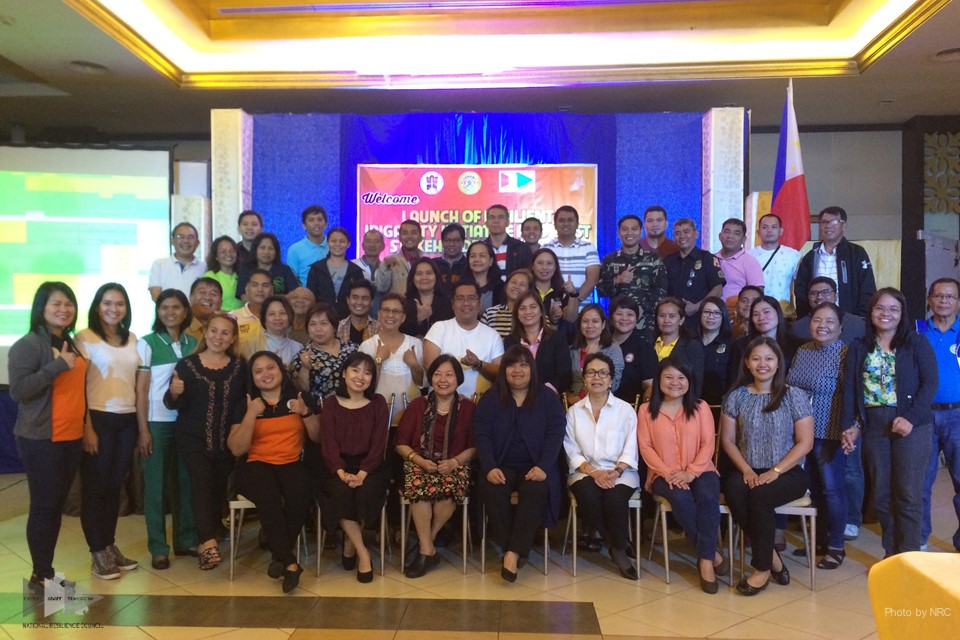
On 18 September, the National Resilience Council (NRC) met with Iriga City’s Disaster Risk Reduction and Management Office (DRRMO) to validate its performance indicators following an internal workshop with the city’s pillar champions and teams.
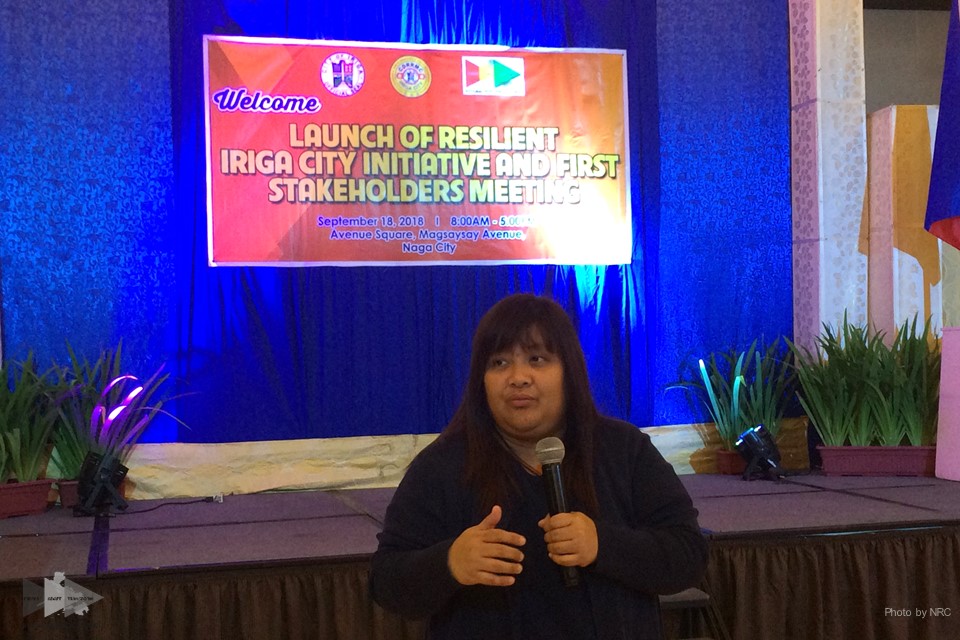
The following day, the teams gathered for Iriga City’s first stakeholders meeting and resilience initiative launch, where Iriga City Mayor Madelaine Alfelor was present to give the welcome remarks and participate in the discussions.
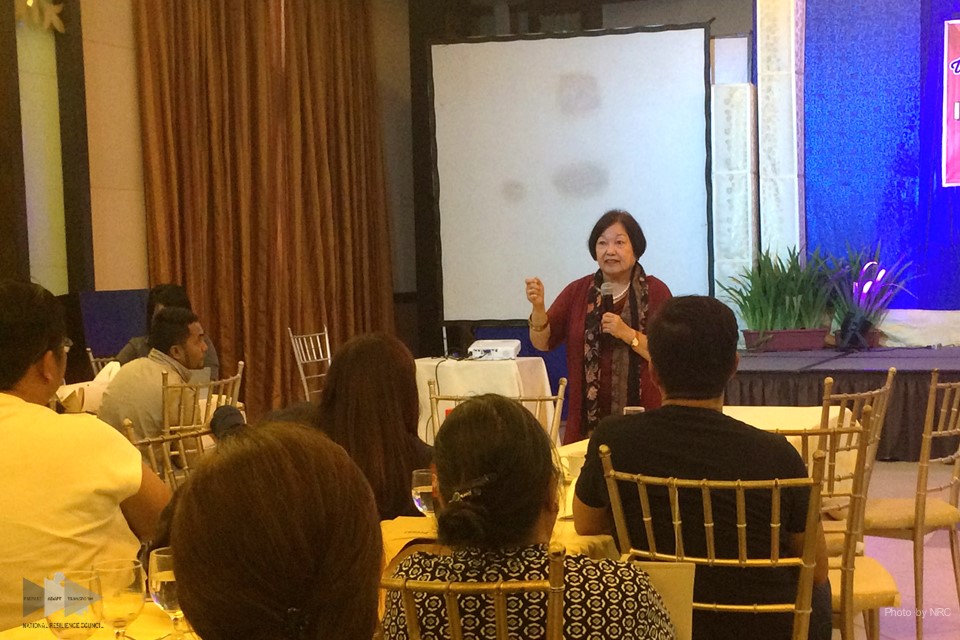
Coastal Cities at Risk (CCAR) Project Head Dr. Emma Porio gave a brief introduction to the National Resilience Council, citing the importance of collaboration in the resilience initiative. CCAR’s Dr. Noralene Uy, SM’s Ms. Simonette Lat and NRC’s Ms. Marilou Suplido facilitated the afternoon workshop along with the Iriga CDRRMOfficers.
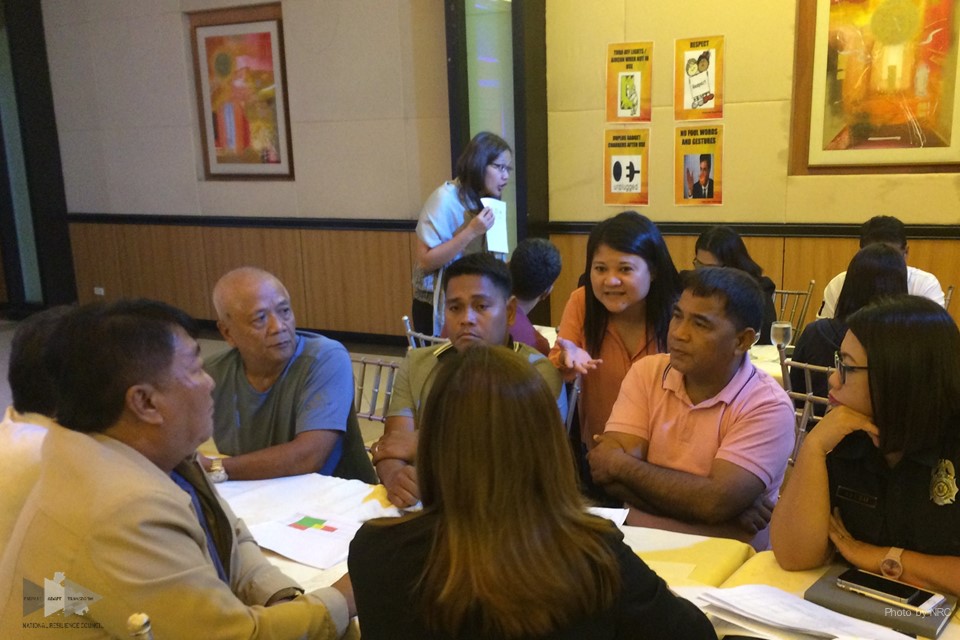
to validate the status of Iriga City’s Resilience Scorecard indicators, as well as come up with action plans in order to move forward.
After the discussions by pillar, pillar representatives gave updates on their respective programs and presented their actions plans during the scorecard revalidation.
